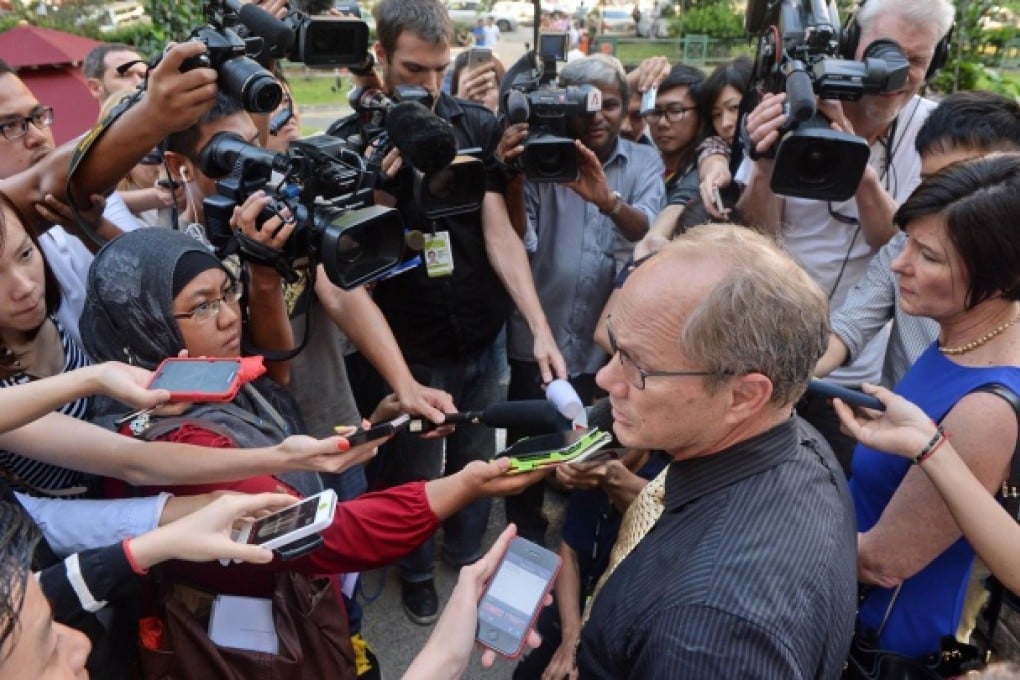Researcher left suicide notes, Singapore inquest told
Researcher's family maintains he was murdered in Singapore in connection with his work at company with alleged espionage links

A US hi-tech researcher whose family claims he was murdered in Singapore was under treatment for depression and left suicide notes before he was found hanged, a public inquiry was told yesterday.
Senior state counsel Tai Wei Shyong, opening a coroner's inquest into the death of electronics engineer Shane Todd, said there were no signs of foul play when his body was found in his apartment last year.
Todd's parents, who are taking part in the inquiry, believe he was killed in connection with his work for a Singapore research institute with alleged links to a Chinese firm accused of involvement in international espionage.
Huawei Technologies, a Chinese telecom giant, and Todd's former employer, the state-linked Institute of Microelectronics (IME), have denied collaborating on any project involving Todd, who was 31 when he died.
Todd's body was found by his girlfriend, Shirley Sarmiento, on June 24, 2012, setting off a saga that reached the highest levels of US and Singapore governments.